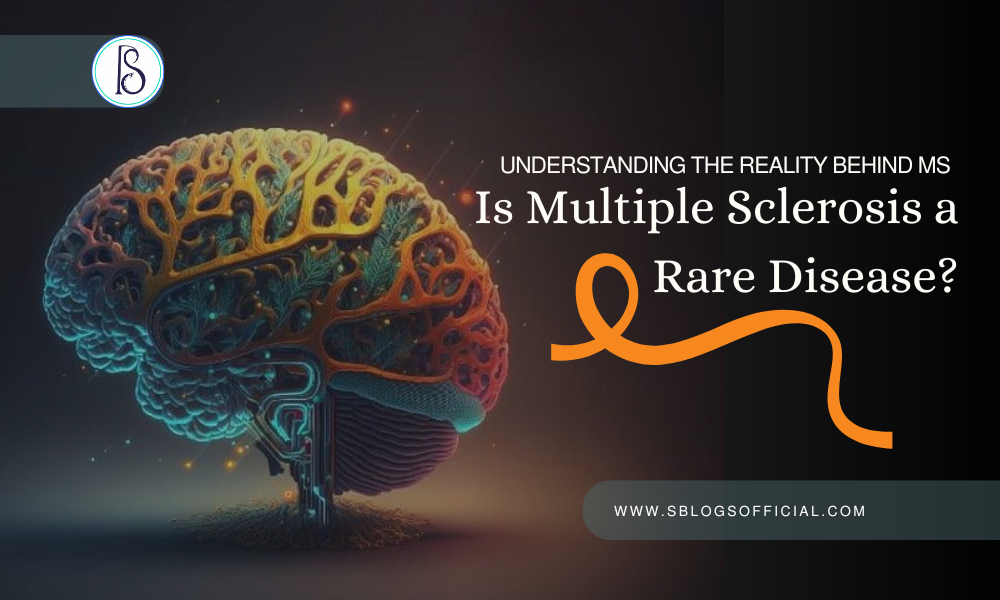
Living with Multiple Sclerosis (MS) or knowing someone who does can feel overwhelming. It’s natural to have questions and concerns about this condition that affects the nervous system. Think of MS as a mixed-up message system in your body, where your immune system mistakenly attacks the protective covering of your nerves. This can cause various symptoms that come and go, making each person’s journey with MS unique. Let’s explore this condition together and understand why it’s more common than you might think, and how it affects people’s daily lives.
Is MS Considered a Rare Disease?
No, Multiple Sclerosis isn’t actually a rare disease. According to recent statistics from the MS Society (2023), there are around 150,000 people living with MS in the UK alone. Worldwide, the number reaches approximately 2.8 million people. While some rare forms of MS exist, the condition itself is one of the most common neurological disorders affecting young adults.
How Common is Multiple Sclerosis?
MS touches more lives than you might expect. In the UK, about 1 in every 500 people has MS, with about 7,000 new cases diagnosed each year. Interestingly, Scotland has one of the highest rates of MS in the world, with 1 in 250 people affected. Women are nearly three times more likely to develop MS than men, typically being diagnosed between ages 20-40.
What Are Usually the First Signs of Multiple Sclerosis?
The early signs of MS can be subtle and easy to miss or mistake for other conditions. Common early symptoms include:
- Unexplained tiredness that interferes with daily activities
- Vision problems, including blurry or double vision
- Tingling or numbness in different parts of your body
- Balance problems or feeling unsteady
- Difficulty concentrating or remembering things
- Muscle weakness, especially in the legs These symptoms might come and go at first, which is why some people delay seeking help. However, if you notice any of these signs persisting, it’s important to speak with your healthcare provider.
Multiple Sclerosis Symptoms
As MS progresses, it can affect different parts of your body. Think of it like a faulty electrical system in a house – sometimes the lights flicker, sometimes they work perfectly fine. Common symptoms include:
- Fatigue that doesn’t go away with rest
- Muscle weakness or spasms
- Problems with walking or coordination
- Changes in memory or thinking
- Mood changes
- Bladder and bowel problems
How is Multiple Sclerosis (MS) Diagnosed?
The journey to an MS diagnosis can feel like putting together a complex puzzle. Doctors use several methods to confirm the diagnosis:
- MRI scans to look for areas of damage (lesions) in your brain and spinal cord
- Blood tests to rule out other conditions that might mimic MS
- Lumbar puncture to check your spinal fluid for signs of inflammation
- Evoked potential tests to measure how quickly your nerves respond to stimulation
- Detailed medical history and physical examination Remember, getting a diagnosis might take time, but this thorough approach helps ensure accurate treatment.
Is Multiple Sclerosis (MS) Hereditary?
This is a question that often worries people with MS who are thinking about starting a family. While MS isn’t directly inherited like eye colour, there is a genetic component. If you have a parent or sibling with MS, your risk is slightly higher – about 2.5-3% compared to the general population’s risk of 0.1%. However, having a family member with MS doesn’t mean you’ll definitely develop it.
Do check our latest blog on Y Chromosome is Degenerating: A Profound Journey Through Genetic Evolution
Early Signs of MS in Women
Being a woman means you’re more likely to develop MS, so it’s crucial to be aware of early warning signs. Women often experience slightly different symptoms compared to men:
- Unusual fatigue during or after pregnancy that doesn’t improve with rest
- Changes in menstrual symptoms or increased MS symptoms during periods
- Vision problems that come and go, like blurry vision or eye pain
- Unexplained tingling or numbness, especially in the arms and legs
- Balance issues, particularly during tiredness or heat exposure
- Cognitive changes, often described as ‘brain fog’
- Mood swings that seem more intense than usual
Can You Live a Normal Life with Multiple Sclerosis (MS)?
Here’s the encouraging news – yes, most people with MS can and do live full, active lives! Thanks to modern treatments and better understanding of the condition, many people with MS continue working, have families, and pursue their passions. While everyone’s journey with MS is different, most people learn to adapt and find new ways to do the things they love.
Remember, being diagnosed with MS isn’t the end of your story – it’s just a different chapter. With support from healthcare professionals, loved ones, and the MS community, many people continue to thrive while managing their condition. If you’re worried about MS symptoms, always speak to your GP – early diagnosis and treatment can make a significant difference in managing the condition.
